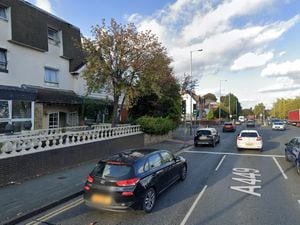Council tax bills could go up after row
Council tax bills in Sandwell could rise next year after benefits rules requiring people live in the borough for two years to get support were torn up in court.

The High Court ruled that bosses had acted illegally by making the demand.
Council leader Darren Cooper today said the authority would not be appealing the decision but warned that rates could rise to cover the cost of bill reductions for potential new claimants.
The council set up a scheme in April 2013 that banned anyone who had not lived within the borough for two years from receiving a reduction in their council tax.
It came after the Government scrapped council tax benefit for working-age people and said it was up to local authorities to decide how to offer help to people on low incomes or on welfare.
But the High Court ruled the council had no power to introduce the 'residence requirement' and the move also fell foul of European freedom of movement and equality law.
Councillor Cooper said he felt the cost of an appeal - £50,000 - was too high and he had been warned it was likely to be unsuccessful. But he said the authority might be forced to raise council tax rates to cover the cost of offering the reduction to more people.
He added: "The legal advice we have received suggests that, under current legislation, we would be unlikely to be successful on appeal.
"On that basis, I am not prepared to spend a further £50,000 on the legal costs for an appeal - particularly given the cuts that we are facing."
"But this judgement could mean we have to look at increasing council tax bills next year to potential new claimants who have little or no previous connection to Sandwell.
"I don't want residents to see their bills increase. And I don't see why some of Sandwell's most vulnerable and poor people should end up paying council tax to foot the bill for others.
"I want the Government to stay true to their word in relation to the Localism Act and to allow local councils to make decisions in the interests of their residents."
Judge Mr Justice Hickinbottom had told the council that there was no evidence that the move to enforce the two-year rule was necessary.
The judicial review challenge was brought to court by three women, two of them born in Sandwell and all of them from the West Midlands.
One of the women was a widow, another had attempted suicide and spent time in a psychiatric unit and a third had suffered domestic abuse.
Around 3,600 people were refused support with council tax bills for a variety of reasons, not just how long they had lived in Sandwell.





